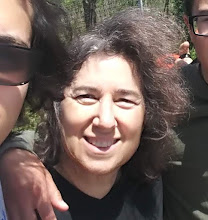I spent much of last week with the Ladies’ Auxiliary of the Cincinnati Talmud Torah – or at least with their minute books from the 1920s through the 1940s. I love these ladies. For decades, they accepted sole responsibility for paying off the heavy mortgage of the Talmud Torah buildings that housed intensive Jewish education for the children of Eastern European Jewish immigrants to Cincinnati.
They acted not out of any sense of noblesse oblige, but out of their commitment to provide Jewish education to their children and grandchildren. They would meet monthly to report on their collections and to plan fund-raising picnics. They also brought in cakes, pillows, and crocheted bedspreads that were raffled off for the benefit of the Talmud Torah. Any remaining cakes were purchased during their “refreshment hour,” with the proceeds also going to the building fund. Funds accrued this way grew slowly in good times and bad, but as they reminded themselves “As slowly as it may seem, we are doing a great deal if it is the best that can be done” (September 17, 1940).
Something of the spirit of their meetings is captured in one notation about their Golden Book, where notable donations were recorded: “Mrs Hirschman our president told the ladies that if they bring in 25 new members their names will be entered in the Golden book with a gold star next to their name. We hope that all our members will always have golden stars both in this world and in the next for their good work” (February 8, 1928).
In addition to whatever gold stars they accrued, between 1916 and 1923 the ladies raised the notable sum of $16,500 to pay off the 1916 downtown Talmud Torah building. With Cincinnati’s moving population, however, they were quickly confronted with a new $55,000 mortgage for the building that was erected in the hilltop suburb of Avondale in 1927. The ladies raised $10,000 against this debt by mid-1929. And, despite the intervention of the Great Depression and World War II, resulting in a loss of membership and in much scarcity, the ladies went gamely on beating back the mortgage, even as regular mortgage payments of $1000, and then $500, were reduced to $250 increments.
As World War II wound down, the mortgage balance had been reduced to less then $9000, at which time the male Talmud Torah committee informed the ladies that they had decided to “lend a helping hand” to polish off the debt. An invitation to a “Mortgage-Burning Dinner” to be held on June 17, 1945 arrived from the Talmud Torah Association and the Ladies’ Auxiliary of the Talmud Torah. The inside of the invitation, however, listed only the names of the “Mortgage Fund Committee” consisting entirely of men.
Cincinnati’s Talmud Torah is remembered with pride for its provision of well-trained professional (mostly male) teachers and the impressive intensive Jewish education it afforded to thousands of school children. Few who remember the existence of the Talmud Torah today would associate its success with women’s work. Yet like so many other institutions central to the Jewish communal life of most American cities, Cincinnati’s Talmud Torah would not have existed without the women who paid its bills. They did much more than serve refreshments – though they did that too.
Source: Cincinnati Ohio, Cincinnati Talmud Torah, Small Collections #2010, American Jewish Archives
Monday, July 2, 2007
Subscribe to:
Post Comments (Atom)


No comments:
Post a Comment